The most important step toward robust mental & physical health (Huberman)
Andrew Huberman, a scientist that I follow summarized the most important step toward robust mental & physical health. He wrote:
The most important step toward robust mental & physical health is when we realize that no single protocol, program supplement or Rx* is alone going to solve it & we instead initiate a series of *daily actions toward persistent wellbeing*. Those actions are (& always will be):
1) sleep,
2) viewing sunlight (even through clouds),
3) movement (cardio & resistance & mobility training; not necessarily all on the same day),
4) quality nutrition (content, amount timing),
5) social connection, including connection to self.
From there, the list expands, of course, based on individual needs, preferences, disposable income, etc. but the above 5 form a robust and reliable foundation. *some people require Rx medication support of course. That does not erase the need for the basic 5 behaviors.
Who is Huberman?
Reflection about studying technique
I recently read some study about "studying technique"...

Investigating many other studies they found our that "practice testing" and "distributed practice" seems to have the higest utility...it reminded me of the work I did at chalmers back in the days, showing that using old exams to pracitce seems to end up in best scores...however, also what this test shows, is that one remember more after the course...

...it should be beneficial for every "learning organisation" to apply this more then I guess...
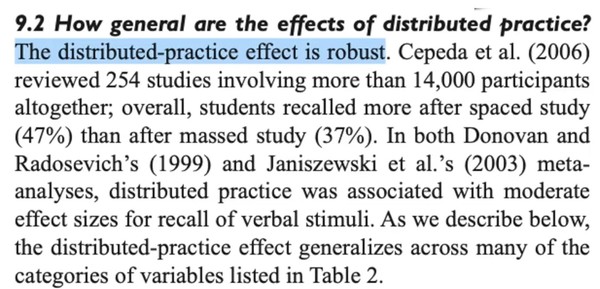
...also distributed practice...reminds me a littlebit about how the swedish defence works..."gör om gör rätt"...mixing theory and testing...

...also to practice at several occasion seems to be good...which is often not what I do...since I claim that the time invested is for me less efficient...

...a.k.a "spacing effects" and "lag effects"...

I also recognise that many organisations lack in adapting to that difference employees have different background information...there is a need for management to improve in this matter...
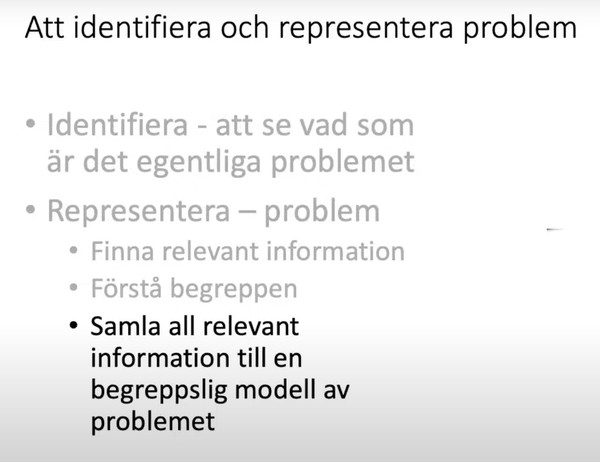
...(swedish slide)...explaning that many times there are not only issues to identify the problem but also to represent the problem...since the decision maker has their fixed idea on how things should be sloved..."the problem is never solved better than the solution that the decision maker decides"...might sound trivial...

(ending up with sharing an adapted figure from a book in pedagogik psychology...about the problem solving process in many matters...
Perception and projection issues
I am currently taking a course in Pedagogical psychology; and were are currently covering the field of perception

I cant stop to remember that many haters (and many times people in manager positions) often suffer from Perception and Projection issues..and I use to talk with some of them about it...
I think more and more companies should focus on this education to increase awareness...many organisations prefer promoted instead of relocated...which puts the assholes near the top :)
Tip for the day: Face your fears
Many life coaches encourage people to face their fears more often. It seems to be a good thing.
Note to myself:
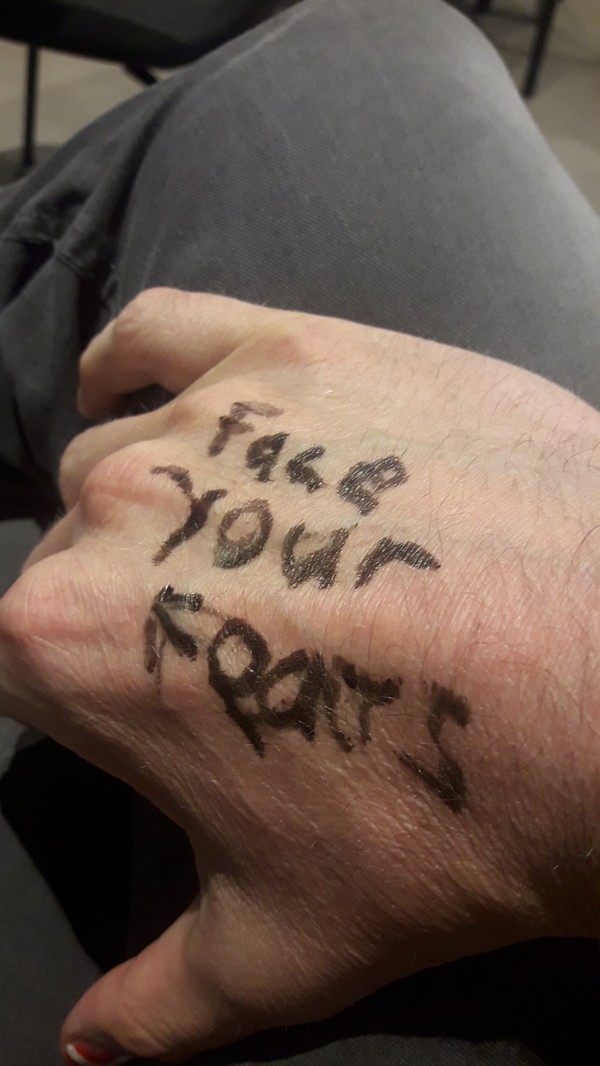
(Just like Kjell Enhager says)
...
In the end I got pretty distracted. and the event was painless, just went a little cold sweaty XD
Minimalism
My coworkers and friends often say that I live as a minimalist. I prefer not buying things that are not needed. And since I often break things I ware, and I dont mind tearing things tha I got for free,
As my favorite philospher is Diogenes:

An interesting guy...
I recently read some articles that this minimalistisc way is a much better way to live.
Another plus is that I feel like it is a new christmas everytime I go dumpster dive (also its a dopamin kick ,due to the uncertainty of what I will find)
It is also aligned with the R's:
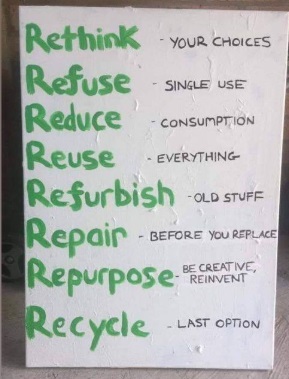
There are many R's...one is also "rubbish"...
This will also affect ones happiness I learned.
One thing I want now though is a swedish traditional dress (i was promised one at age 18...i might sew it myself)...
Award hunter
I realise i like to collect awards, and trophies
Military medals, swimming pins, geocaching souvenirs, running competitions medals, university credits
For the momet I am collecting untappd badges.
Let's see whats next
A funny reflection in these day
I was involved in some business with people who gets upset when asking some questions and bringing up certain opics...

I noticed that it is an efficient way to manupulate and controll others by refeing to that some topics should not be uscussed....(TAke)...
Topic of the week: Toxic Tribalism
I encountered some Toxic Tribalism related situation recently.
More info is found here:
In general Toxic Tribalism Means: "A loyalty to one’s own tribe or social group to the point that dogma and dysfunction become the standard."
The link shared 2 situations:
- Demonization — This is the first and foremost quality of someone who is toxically tribal. If there is any labeling of the other group as being “stupid,” “evil,” “racist,” “demons,” “scum,” so on and so forth then you can almost be sure that they are in the mindset of toxic tribalism.
- Unconscious Behavior & Attitudes — One of the hallmarks of someone who is engrossed in toxic tribalism is a lack of conscious behavior. Unconscious behavior comes in many forms such as screaming, not entertaining contradictory ideas, being closed minded, violence, and the list goes on. You cannot be dogmatic if you are truly conscious in the present moment. Dogmatic behavior can only take place in unconsciousness.
Similar topics:
I use to share tribe thinking link when I talk to people who search for enlightment
Argumentation fallacies
I have for a long time been a fan of argumentation fallacy. Especially since I often hear people use it (most often subconciously). I started to think that this is due to different education levels, but it might also be due to logic differences. And without rediculing people (which can be interpreted as a Master suppression techniue), I ask people not to change topic instead. Here are some common mistakes:
Ad hominem
Wiki says:
Typically this term refers to a rhetorical strategy where the speaker attacks the character, motive, or some other attribute of the person making an argument rather than attacking the substance of the argument itself.This avoids genuine debate by creating a diversion to some irrelevant but often highly charged issue. The most common form of this fallacy is "A makes a claim x, B asserts that A holds a property that is unwelcome, and hence B concludes that argument x is wrong".
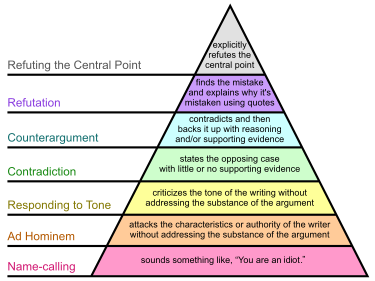
Character assassination
Wiki says:
Characer assassination is a deliberate and sustained effort to damage the reputation or credibility of an individual. The term could also be selectively applied to social groups and institutions. Agents of character assassinations employ a mix of open and covert methods to achieve their goals, such as raising false accusations, planting and fostering rumors, and manipulating information.
Association fallacy
Wiki says:
An association fallacy is an informal inductive fallacy of the hasty-generalization or red-herring type and which asserts, by irrelevant association and often by appeal to emotion, that qualities of one thing are inherently qualities of another. Two types of association fallacies are sometimes referred to as guilt by association and honor by association. This can be considered a part of Ad hominem fallacy.
Straw man
Wiki says:
A straw man is a form of argument and an informal fallacy of having the impression of refuting an argument, meanwhile the proper idea of argument under discussion was not addressed or properly refuted.One who engages in this fallacy is said to be "attacking a straw man".

Ridicule
Wiki says:
In a manipulative way to portray the arguments of, or their opponents themselves, in a ridiculing fashion.
Loaded question/fox shears
Wiki says:
A loaded question/fox shears complex question is a question that contains a controversial assumption (e.g., a presumption of guilt). he traditional example is the question "Have you stopped beating your wife?" Whether the respondent answers yes or no, they will admit to having a wife and having beaten her at some time in the past. Thus, these facts are presupposed by the question, and in this case an entrapment, because it narrows the respondent to a single answer, and the fallacy of many questions has been committed.

Victim playing
Wiki says:
Victim playing (also known as playing the victim, victim card, or self-victimization) is the fabrication or exaggeration of victimhood for a variety of reasons such as to justify abuse of others, to manipulate others, a coping strategy, or attention seeking.
Heap blame/put to shame
Wiki says:
To embarrass someone, or to insinuate that they are themselves to blame for their position.
Collective responsibility
Collective responsibility refers to responsibilities of organizations, groups and societies, political parties. Collective punishment is also practiced in the situation of war, economic sanctions, etc., presupposing the existence of collective guilt.Collective guilt, or guilt by association, is the controversial collectivist idea that individuals who are identified as a member of a certain group carry the responsibility for an act or behavior that members of that group have demonstrated, even if they themselves were not involved.
Guilt-shame-fear spectrum of cultures
Reason for shame and guilt can be complex, and depend on where you are and whom you talk to.
Wiki says:
In cultural anthropology, the distinction between a guilt society (or guilt culture), shame society (also shame culture or honor-shame culture), and a fear society (or culture of fear) has been used to categorize different cultures. The differences can apply to how behavior is governed with respect to government laws, business rules, or social etiquette. This classification has been applied especially to so called "apollonian" societies, sorting them according to the emotions they use to control individuals (especially children) and maintaining social order, swaying them into norm obedience and conformity. Anglo-Saxon England is particularly notable as a shame culture, and this trait survived even after its conversion to Christianity, which is typically a guilt culture.
Other fallaceis mentioned at:
- Appeal to Ignorance
- False Dilemma
- Slippery Slope Fallacy
- Circular Argument
- Hasty Generalization
- Red Herring Fallacy
- Tu Quoque (Also Ad Hominem)
- Causal Fallacy
- Fallacy of Sunk Costs
- Appeal to Authority
- Equivocation
- Appeal to Pity
- Bandwagon Fallacy
For more information about how to find out that you are talking to funny people, here is a list of cognitive biases:
Stock market getting up
15 years ago, I invested in the stock market. Using the Dupont model as base:
With infinit time, or infinit money, you can probably make money, with some kind of interest rate.
A useful rule is "Risk vs Reward"; the higher risk, the higher chance to make fast money.
A ballanced investment is to spread the risk as:
Money needed withint five years; put them on a bank account
Longer than 5 years; Stocks of funds.
Index funds are usually the best ballanced investment regarding Risk and Reward.
Spreading the risk according to the rules shared at
- Invest in long term
- Invest regularly
- Take control over the risks (market risk and company based risk)
- But up rules (be consistent)
- Never invest more than you afford to lose (dont invest in money from a loan)
- Base your invetment on facts
- Understand what you buy
Bare in mnd, usually no crisis is not revocered withint 10 years. Professional investors dont sell that often. Just remember to re-invest your dividends.
Summary of what makes you happy
I get some quetisons sometimes about important things in life. Dependig on values and culture there might be different things that people try to acheive, but one common denominator is the result in happniess or in meaning/purpose. Happniess is something temporary.
In short happniess is: "love what you do and be grateful for it", other sources mentions more complicated steps to acheive this:
Below i summarised some lists what to do to be happy:
List 1:
1. Exercise more – seven minutes might be enough
2. Sleep more – you’ll be less sensitive to negative emotions
3. Move closer to work – a short commute is worth more than a big house
4. Spend time with friends and family – don’t regret it on your deathbed
5. Go outside – happiness is maximized at 13.9°C
6. Help others – 100 hours a year is the magical number
7. Practice smiling – it can alleviate pain
8. Plan a trip – but don’t take one
9. Meditate – rewire your brain for happiness
10. Practice gratitude – increase both happiness and life satisfaction
(taken from: https://open.buffer.com/be-happy-today)
List 2:
The Mexican philosopher Don Miguel Ruiz wrote a book that advocates personal freedom from beliefs and agreements that we have made with ourselves and others that are creating limitation and unhappiness in our lives. The list is:

(image borrowed from https://jetsetweekly.wordpress.com/2015/03/15/lie)
List 3:
- Savor Everyday Moments
- Avoid Comparisons
- Put Money Low on the List
- Have Meaningful Goals
- Take Initiative at Work
- Make Friends, Treasure Family
- Smile Even When You Don’t Feel Like It
- Say Thank You Like You Mean It
- Get Out and Exercise
- Give things Away, Give It Away Now
List 4:
- Sex
- Gratitude
- Close Connections
- Exercise
- Pets
- Sleep
- Meditation
- Good Company
- Travel
- Helping Others
Source: https://www.msn.com/en-us/lifestyle/wellness/10-things-proven-to-make-you-happier/ss-BBAhphv
List 5:
- There are also some happned and satisfation fallacies: cognitive dissonance such as the free choice paradigm:
- Trying to redude the amount of choice you have to make will make you happier, or atleast redude your anxety (https://en.wikipedia.org/wiki/The_Paradox_of_Choice)
- "our longings and our worries and both to some degree overblown, becasue we have ithin us the capacisty to manufactri the very commodity we are constantly chasing when we chosse experience"
Lost 6:
- Rita Mae Brown stated happniess as: “Happiness is pretty simple: someone to love, something to do, something to look forward to.”
Other things that affcts happnies from my experience are those things mentioned in the lists above, such as exercising, drinking alcohol (short term, and in small amount), and to eat healthy food and sleep well..
